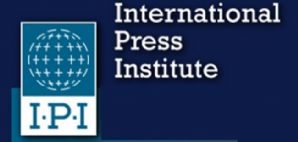L'IPI appelle le Président de la Pologne a rejeter la nouvelle loi sur les médias.

Ce projet de loi permettrait au gouvernement de contrôler le service public de radio et télévision.
Suite du texte en anglais
The International Press Institute (IPI) today joined calls for Poland's president to reject a law that would effectively give the government control over the appointment of top managers of public service broadcasters.
The law would give the treasury minister full control of appointing management level officials at Polskie Radio and Telewizja Polska (TVP), and would effectively terminate current contracts, a move that opponents argue conflicts with European Union standards and undermines free speech.
Poland's Parliament, in which recently elected deputies from the nationalist Law and Justice party (PiS) hold an absolute majority, passed the measure late last month just days after it was introduced. The law will take effect later this week if it is approved by Polish President Andrzej Duda.
"We join with free expression defenders, civil society representatives, EU officials and the people of Poland, who have taken to the streets in protest, in condemning this law and we urge President Duda not to sign it," IPI Director of Advocacy and Communications Steven M. Ellis said. "Allowing the government to hand-pick the heads of public broadcasters risks government censorship and poses a tremendous threat to democracy and people's ability to make informed decisions about their future."
International observers have strongly criticised the law and directors from four TVP channels resigned in protest Saturday. EU Commissioner for Digital Economy Guenther Oettinger has expressed deep concern over the law, saying that it conflicts with fundamental values of the EU. He suggested that full implementation of the law would be grounds to activate the EU Rule of Law Mechanism in order to monitor Warsaw, which could potentially result in Poland losing its vote in the European Council.
OSCE Freedom of Media Representative Dunja Mijatovic also criticised the law, commenting that such "hastily introduced changes will endanger basic conditions of independence, objectively and impartiality of public service broadcasters".
The media law comes as the PiS faces criticism for recent controversial changes to Poland's Constitutional Court which require a two-thirds majority for rulings and increase the minimum number of judges needed to issue a ruling on certain issues from nine to 13. Given the PiS' recent appointment of five justices, one third of the decision makers, observers say the move will paralyse the court and remove an important check on government power.
The media also comes as Parliament considers a proposal to allow for greater government surveillance power. Critics, arguing that Poland does not face any credible terrorist threat, have suggested that the measure will be used to monitor journalists and NGOs not strictly in line with the PiS voice.
By: IPI Contributor Jovana Vujanovic